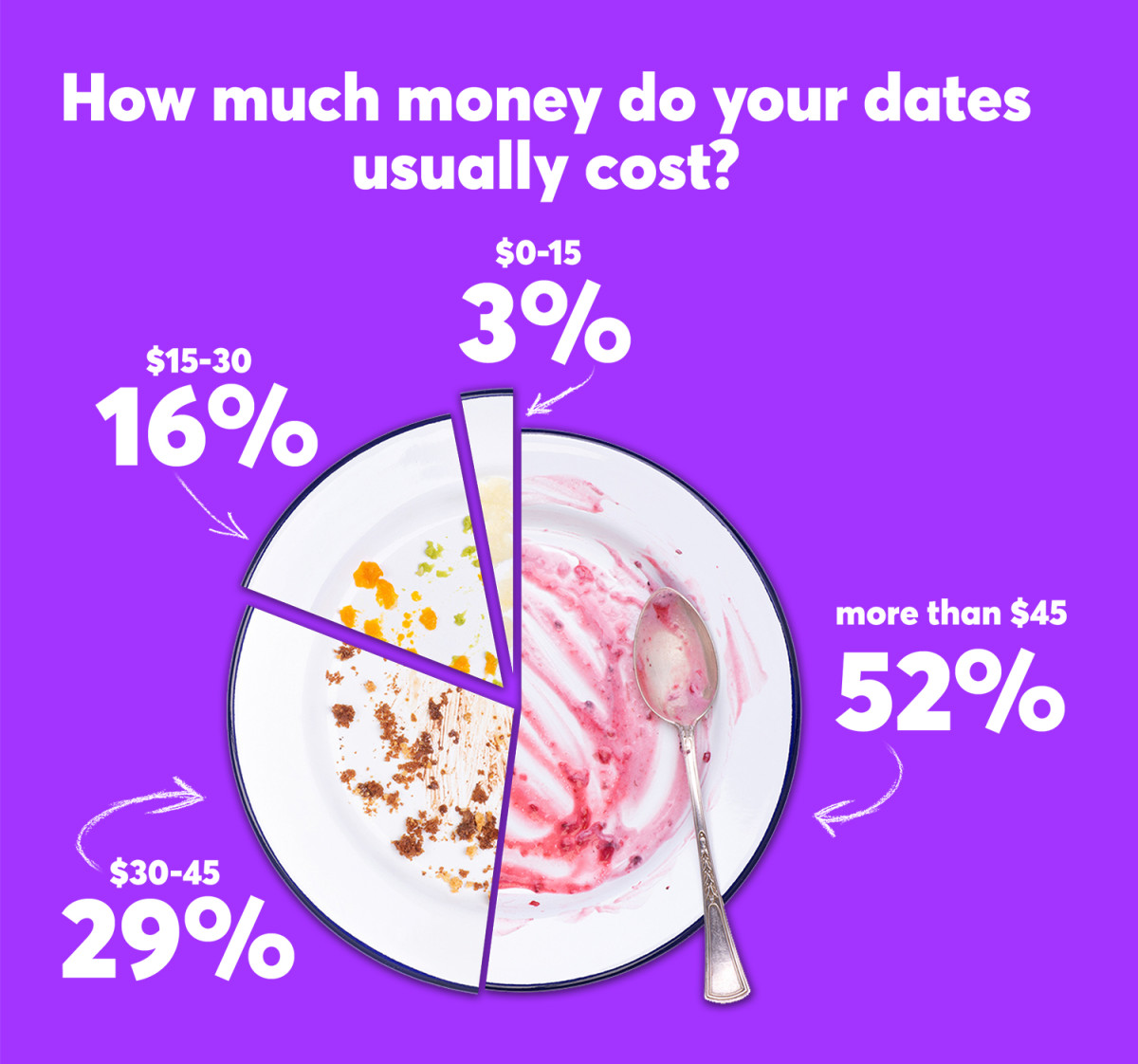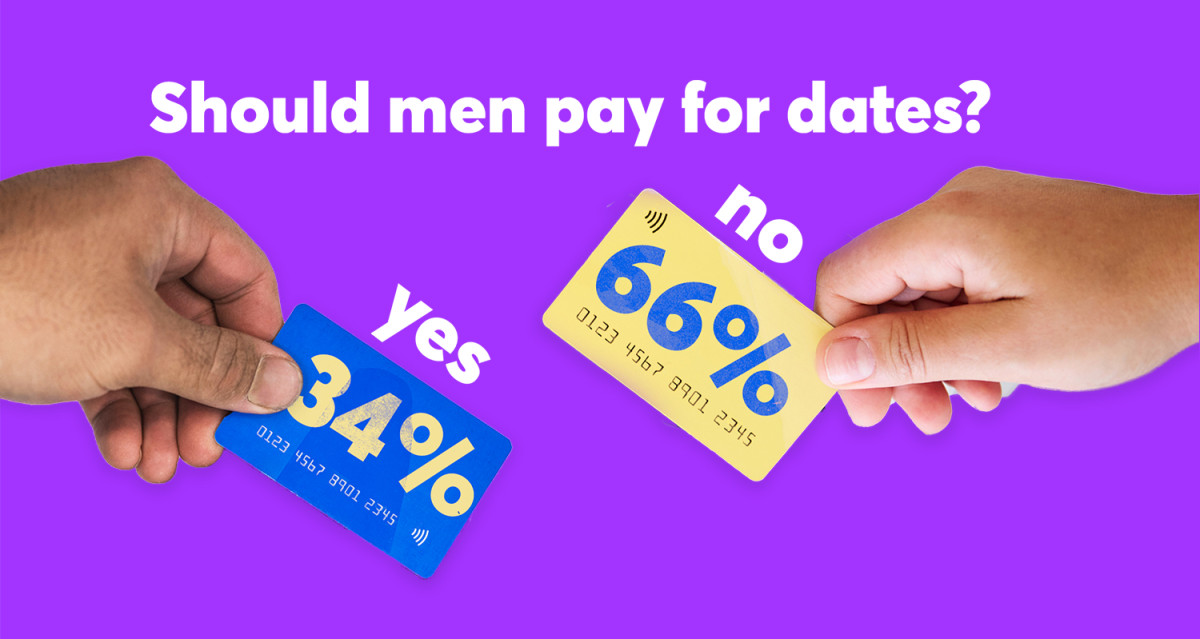New Zealand seems to champion gender equality but a bunch of us reckon men should pay for dates with women.
But this isn’t an uncommon belief - a US study from 2023 surveyed over 550 straight university students and found men paid for women on the first date around 85% of the time. This dropped to around 60% on later dates.
Wanting to find out more about what New Zealanders think, Re: News conducted a very un-scientific survey to find out whether people think men should pay for dates and got a psychology lecturer to weigh in on the results.
Please note: Parts of this article focus on straight relationships because the concept of ‘men paying for women’ is rooted in heterosexuality. We acknowledge the conversation around paying for dates can be different for queer relationships.
Results from Re: News’ audience dating survey
We asked: For people who think men should pay on dates, how many dates should men pay for?
The most common response was half of all dates or the dates a man plans should be paid for by him.
This was followed by some people saying men should pay for just the first date.
The third most common response was that men should pay for the first few dates.
Some people said a man should pay for as many dates as he wants to, while a smaller chunk said men should pay for all dates.

We asked: Why should/shouldn’t men pay for dates?
The most common response was the bill should be split or both people should take turns paying.
The second most common response was whoever asked for the date should pay.
One person gave the suggestion: “Whoever asked the other out should offer to pay and whoever was invited should offer to split.”
A lot of women who responded said men shouldn’t pay because then they feel like women owe them something in return.
“Men can think this is transactional and grants access to [your] body or more time,” one woman said.
The fourth most common response was men should pay for dates because it makes up for gender inequality and the gender pay gap.
Another woman said: “Women have to take the pill, give birth, have periods. Men can foot the bill for a date.”
The next most common response was that men paying is a nice gesture and is chivalrous, with one pansexual man saying: “I enjoy the feeling of providing.”
The sixth most common response was that if people want gender equality, they shouldn’t expect men to pay for women.
“It implies women can't support themselves… it’s rooted in misogyny,” one person said.
Louisa Theunissen is a 22-year-old pansexual woman who refuses to let men pay for her on dates.
“When I was around 19 and I let men pay for dates, they always felt entitled to something afterwards, like I owed them … It made me feel gross,” she says.
Louisa says 50% of men take her to a bar or to Maccas, which costs around $15 per person.
The other 50% take her on a “proper date, like a restaurant or an arcade” which can cost $120 all together.
Regardless of the cost, having a man pay for her on the first date can come with obligations.
“With men I've encountered in Auckland, some can be baffling. Even if they pay for my frozen coke from Maccas, they feel entitled to sex,” Louisa says.
Louisa has spent two years actively dating and finds most of her dates on Hinge.
“I’ll say ‘I’m going to this bar at this time, you should come’ … It’s always me taking the initiative.”
Louisa says her Brazilian culture makes her outspoken and she was raised to ask for what she wants.
She says she is also quick to let men know she will be paying for herself on dates.
Expectations within queer relationships feel different
When dating women or non-binary people, Louisa says she feels as though there is equal initiative from both people to go on a date.
She says she often pays for the full date if it's with a woman or a non-binary person because she likes spoiling them.
“With them, we both know and understand we don’t owe each other anything and we’ll just see where it goes.
“And if there is a second date, they tend to pay for it or we split the bill,” she says.
The cost of living crisis and paying for dates
“Maybe I want to go to Andrew Andrew on the Auckland Viaduct and get two drinks, which would cost $30 per person.
“For me, that's a good amount for a night out. For my date, that amount of money could mean a lot,” she says.
Louisa once went to a nice restaurant with a man who knew how expensive the food would be.
He told her he was low on cash after he saw the bill and asked her to pay for them both.
Louisa says “I told him I could pay but I’d never be seeing him again” because he failed to communicate his financial situation despite knowing what restaurant they were going to and how much the food cost.
Louisa’s parents were married for 20 years and mostly had separate finances, which Louisa says influenced her self-sufficiency.
“I grew up with my mum telling me that the world doesn't owe me anything so I should be prepared to pay for anything I want.”
Romantic entitlement can play a big part in dating
Romantic entitlement is a phenomenon that explains why some people think they are owed something if they pay for dates, senior psychology lecturer at Victoria University of Wellington Matt Hammond says.
Hammond, who researches romantic relationships and gender equality, says some people view relationships as very “transactional” and think they are entitled to affection or love if they have invested in the relationship with money or emotion.
Research shows these people are much more likely to behave negatively and aggressively, particularly if rejected, Hammond says.
“Higher romantic entitlement is a lot like narcissism, and often occurs alongside higher insecurity and lower esteem,” he says.
Gender prescriptions
Prescriptions are things people are socially expected to do.
Men asking women out on dates or paying for dates are common gender prescriptions in dating, Hammond says.
Like most countries in the world, Hammond says men tend to pay for dates more often than women in New Zealand, especially for first dates.
Gender prescriptions can help uphold inequality with unfair expectations, he says. For example, the idea that men should have money or women should always look attractive.
Hammond says if there is a prescription for men to pay for women, it also implies that men-women relationships are the norm and excludes queer relationships.
“I think some of the ‘no’s’ in Re: News’ survey might be tapping into people who want to resist heteronormative expectations,” Hammond says.
Leaning on gender norms can be easier in the moment
Looking at Re: News’ survey results, Hammond says while people might intend to split the bill on a first date, “first date nerves” can stress them out so they fall back on heuristics.
A heuristic is a stereotype that makes the world easier to understand.
Men paying for dates can be considered a heuristic and Hammond says people are more likely to rely on that stereotype when they are unsure of what to do and are overwhelmed by choices.
When people are stressed out by suggesting splitting the bill or think their date might find them rude for discussing the bill, they find it easier to let the man pay, Hammond says.
Even if, at their core, they do not like upholding gender norms.
Chivalry isn't big in New Zealand and that might be a good thing
Hammond says chivalry is a set of attitudes that tell men to care for, protect and idealise women.
While that sounds positive, he says the expectation that it is the responsibility of men to protect women can be harmful because it “prioritises men’s power”.
Countries that strongly believe men should protect women have the highest levels of domestic violence and public harassment towards women, Hammond says.
United Nations statistics show that New Zealand has relatively high equality across genders.
Hammond says chivalry is not a big social norm in New Zealand because our culture is fairly egalitarian.
But he says there are still individual New Zealanders who strongly endorse chivalry and gender norms in their own circles, and New Zealand still has ways to go before it reaches actual equality.
More stories:
Why I kept my ex’s clothes
Breakups suck but sometimes you get a new jumper out of it.
When your South Asian identity and queer identity don't feel compatible
"It’s still painful for me to revisit, because it was something that was supposed to be precious.”
It’s 2023, why are women still carrying the burden of contraception?
“I thought maybe I'm being stupid for asking him to pay.”
